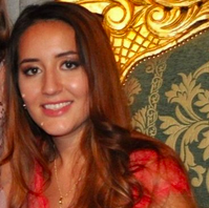 Mimi Boussouf serves as the International Service Chair for Rotaract DC. Rotary and the United Nations have built a strong relationship through their tenure since 1945 when 50 Rotarians were part of the original 800 individuals to draft the UN Charter. This month, Rotaract board members Amanda Silva (President), Rafik Bennacer (Public Relations Chair), and Mimi Boussouf (International Service Chair), travelled to Geneva to participate in Rotary UN Day. They were among an exclusive group of 600 Rotarians to participate in the two-day conference, which focused on fostering the long partnership between the two organizations. This annual event, normally held at the UN building in New York City, took place at the UN Palais in Geneva for the first time this year. Rotarians, Rotaractors and Interactors, met with UN representatives to celebrate their joint efforts and inspire further collaboration in creating a peaceful and sustainable world. The theme for this year’s conference was ‘Peace – Making a Difference;’ which meant to highlight the work of people and organizations actively promoting peace, rights and the well-being of people throughout the world. The conference held workshops around this theme, and honored six notable Rotarians as champions of peace. The events’ overarching goal sought to encourage Rotarians to continue their global partnership with the UN and their efforts towards achieving the latest UN Sustainable Development Goals for 2030. The conference began with a fascinating workshop exploring the role of artificial intelligence in conflict resolution. Dr. Jean Marc Rickli presented on the realities of AI use through the challenges of war, and its future role in humanity, while Mr. Marc Oliver Gewaltig took a slightly opposing view exploring the benefits of AI and delving into its true definition. After the panel discussion and instead of the traditional Q&A, Moderators Myrna Lewis and Justin Friedman facilitated an open dialogue between 50 participants in the audience to come on stage and represent their viewpoints for two perspectives on Artificial Intelligence presented during the panel: AI is good for humanity vs. AI will be the demise of humanity. The moderators wanted to demonstrate that everyone has the right to be heard, that every perspective and opinion is valid, and there is no fundamentally right answer. The purpose of the dialogue between the two sides was to listen to all perspectives and statements and then when coming to a decision between the two, to mention what resonated or “hit home” amongst the comments made and what it helped you understand about yourself. Rafik, Mimi and Amanda (left to right) pose for a pic at the Opening Ceremony at Rotary UN Day 2017. Rotaract DC President Amanda Silva participated in this activity. She chose to be on the side of “demise” because she believed that although AI can be good, at the end of the day, technological advances that are good are equally advanced with bad technological advances and those decisions are not made by the majority. The decisions on how technology advances and the purposes it serves are decided by a select few. When it came to sharing the final reflection, the two opinions that hit home the most were from the opposite dialogue that stated that AI helps increase human creativity and another opinion from her side that mentioned that the increase in AI also means a decrease in jobs for more people. She believed this meant that she identifies with the have-nots because everyone at the conference needs to recognize that they are among the privileged and as such although they may benefit from AI, they need to acknowledge that the majority may not benefit in the same way and that is something to be cognizant of. The second part of the evening consisted of speeches from heads of government, parliament, and civil society. They spoke about their perspective on how to ensure we work together to reach the 2030 Sustainable Development Goals. The ultimate challenge presented to Rotarians and Rotaractors was; What can you do in your daily life that contributes to the grassroots movement of coming closer to achieving the SDGs? Secretary General of Rotary, John Hewko, confidently remarked that Rotarians in their global projects, global grants, and local community service projects, take steps every day towards achieving the SDGs. The evening closed with an enchanting classical music concert performed by the talented UN Orchestra of Geneva, followed by a networking reception. The second day of the conference opened with speeches from UN and Rotary leadership. Following their discourses were moving accounts of service by the six Rotarians Peace Honorees, who each made significant and impactful contributions to their communities in promoting a more peaceful world. Interactors joined us for this discussion as well; where Interact International leaders presented their thoughts on peace and making a difference among the future generation of Rotarians. In the afternoon, attendees broke out into discussion workshops. President Amanda represented the club at Workshop 1; Sustainable Development, Peace, Rights and Well-being. The workshop focused on the importance of diversity and perspective when working together. Dr. Achim Wenmann, Executive Coordinator, Geneva Peacebuilding Platform, and Senior Researcher at the Graduate Institute’s Centre on Conflict, Development and Peacebuilding (CCDP), noted the significance of having women and people of all ages included in this effort. Other speakers expanded on this by emphasizing that war comes from separateness and having decision-makers that do not reflect the reality of our societies. Opening Plenary/Day 2 Rotary UN Day; General Assembly Hall UN Palais des Nations International Service Chair Mimi and PR Chair Rafik represented the club at Workshop 3; Education / Science, a pathway to Peace for Young Leaders. Intended for Rotaractors and Interactors, this workshop focused on educating young people about methods of conflict resolution in hopes to achieve a more peaceful and happy future generation. Dr. Jean Best, one of the six peace fellow honorees, spoke about her the idea behind her educational ‘Peace Project.’ Through this project, she developed a curriculum for young people that teaches peace and conflict resolution skills to help them cope and make better life choices. Dr. Best proved that conflict resolution in our generation, must be looked at differently than theirs in order to account for the changes in social stresses, the presence of cyberbullying and suicide as the leading cause of death among young people. Another peace fellow, Kiran Singh Sirah, presented an engaging discourse on the uses of storytelling as a pathway to peace. As an example, he has used storytelling to help traumatized communities connect with their voice to end gang violence and ethnic conflict. The closing plenary honored attendees and conference organizers, and reflected on the impact Rotary has had in helping the UN achieve their previous developmental goals. As a result of Rotary and UN’s direct partnership in polio eradication, only three countries in the world remain polio endemic in which 40 cases were confirmed worldwide as of 2016. This is a 99.9% reduction from the 1980’s, when the world saw over 1,000 cases per day. A repeated saying at the conference this year were words from international peace leader Mahatma Ghandi ‘There is no pathway to peace, peace is the pathway.’ Words that we as Rotaract DC members take to heart as we continue to prioritize the peace, rights and well-being of our community members through dedicated service. Rotaract DC would like to thank our parent organization, the Rotary Club of Washington DC, for their generous sponsorship of this event. Amanda, Rafik and Mimi make new international Rotaract friends over Swiss cheese fondue!
Comments are closed.
|
The Rotaract Club of Washington DCArchives
November 2021
Categories |
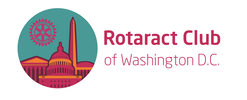
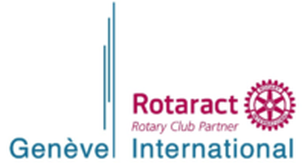
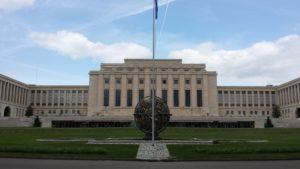
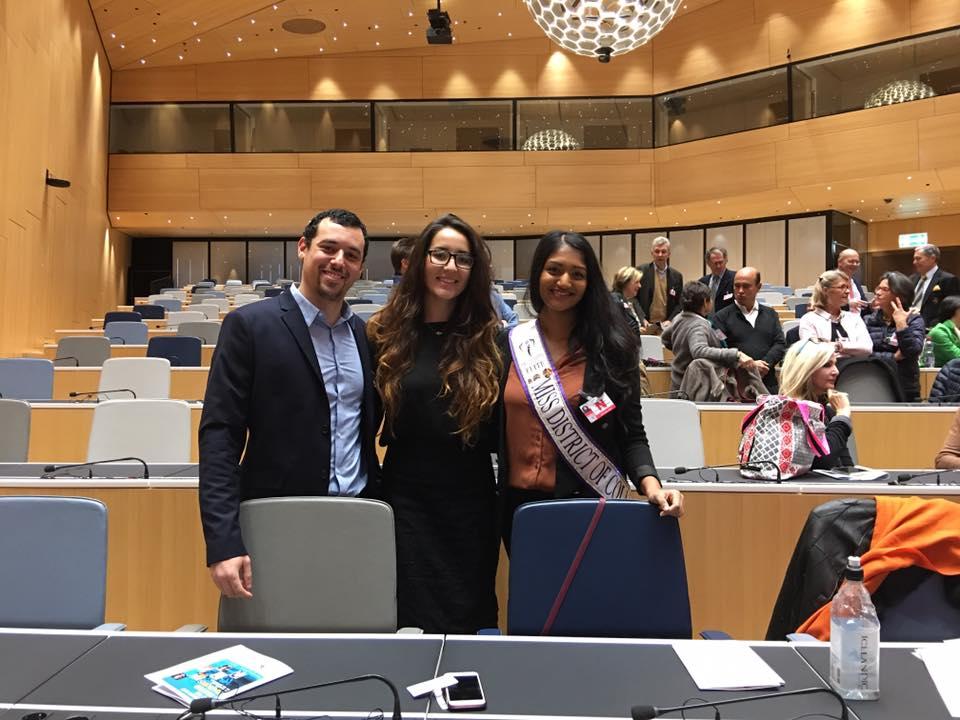
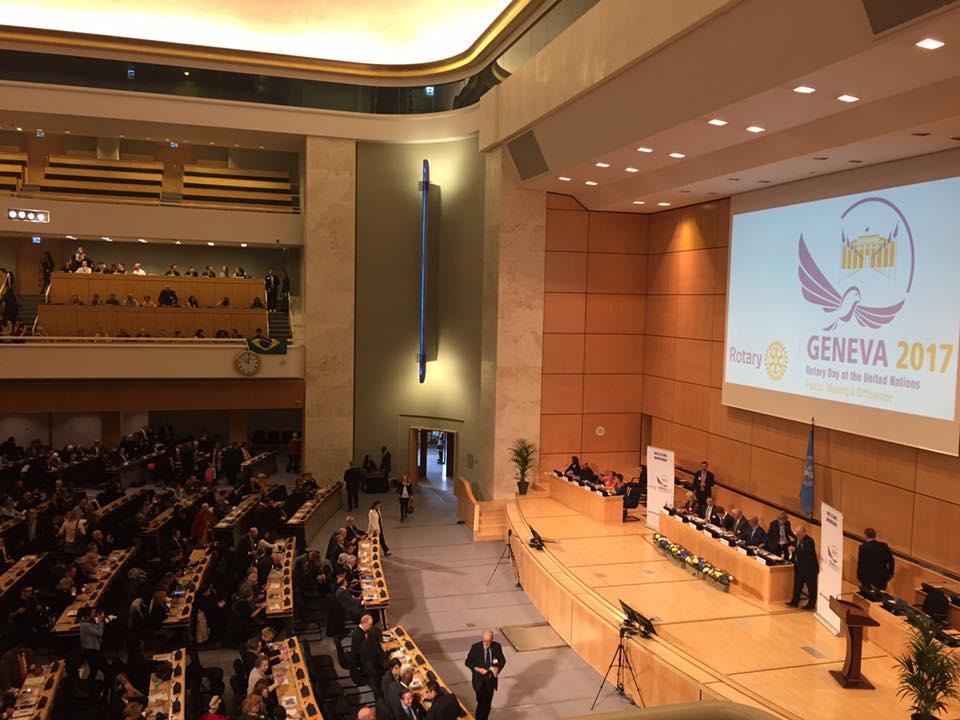
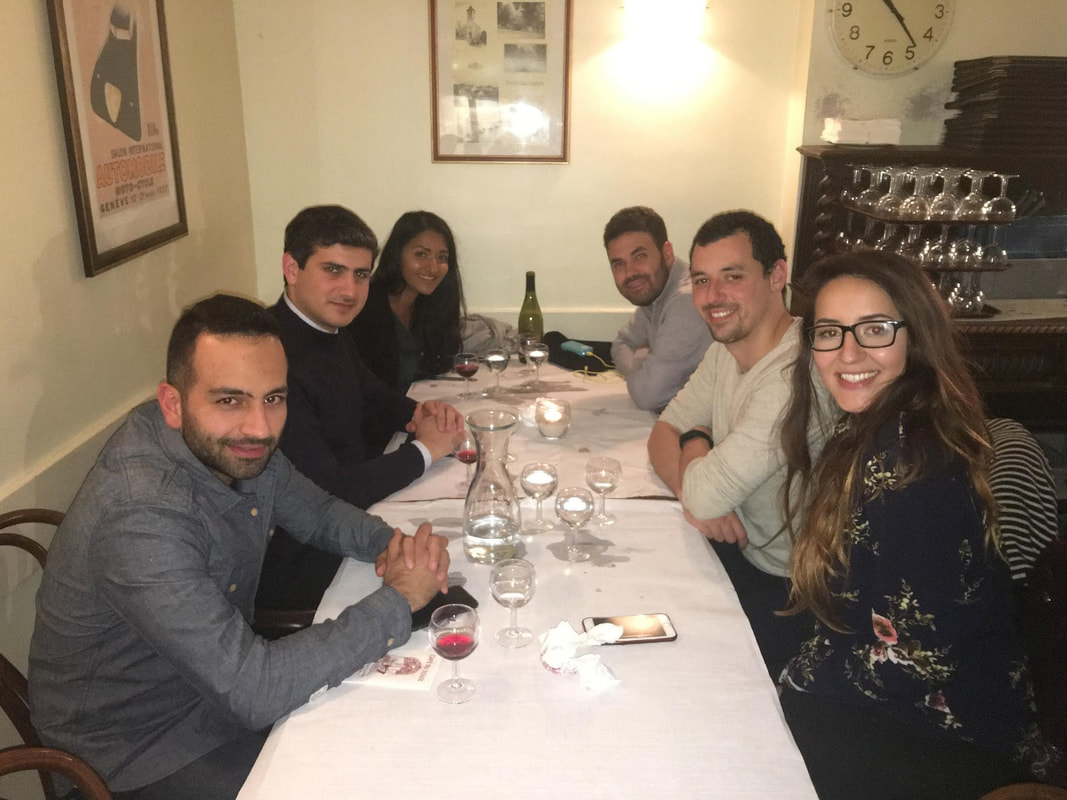
 RSS Feed
RSS Feed